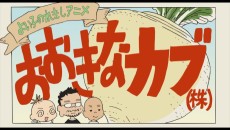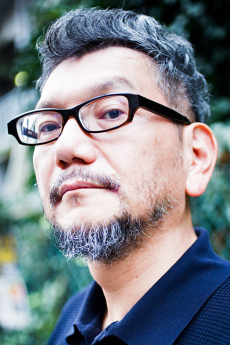
Hideaki Anno
庵野秀明, あんのひであき, アンノヒデアキ
Birth: May 22, 1960
Age: 65
Gender: Male
Blood Type: A
Hometown: Ube, Yamaguchi Prefecture, Japan
Years Active: 1982 ~ Present
Alma Mater: Yamaguchi Prefectural Ube High School
Introduction:
Hideaki Anno is known as one of Japan's celebrity anime directors. In 1984 he founded Studio Gainax along with Takami Akai and Hiroyuki Yamaga. As Anno grew up with anime and 8mm experimental film, he brought a mindset of homage and intertextuality novel to anime at the time. He is well known in Japan and has branched out into live action film making, acting, and voice acting in addition to his anime works.
Style:
Anno is a first-rate effects animator, known for drawing very realistic scenes of explosions and debris that bears resemblance to atomic bomb test footage. He was mentored by Hayao Miyazaki during the making of Nausicaä, where he drew the giant insect monsters. Though he's done excellent work on a wide variety of shows, his crowning masterpiece of animation is generally accepted to be the rocket launch sequence in Wings of the Honneamise. Another great showcase of his skills are the legendary explosions of DAICON IV.
As a director, Anno has made a career out of subverting expectations in established genres and tropes. The signatures to his direction are rhythmic jump cuts, intertitles, minimal camera movement and avant-garde techniques like emulsion scratches and found footage photomontage. He's also fond of using Ozuesque cutaways of urban scenery, particularly things related to infrastructure and technology, such as power lines. Anno's works are known for being dialogue-driven and for beginning with a light atmosphere before transitioning into the dire.
In addition to Miyazaki, Anno lists Ichiro Itano and Yoshiyuki Tomino as artistic influences. He is also a professed fan of Japanese New Wave director Kihachi Okamoto. Anno is close friends with Kunihiko Ikuhara, which fueled rumors that Ikuhara was the model for Nagisa Kaworu in Evangelion. Both share a jaundiced view of the anime market and a love for the Japanese avant-garde.
Biography:
Anno established his name as a director with his debut, Top wo Nerae! Gunbuster!, as the 6-episode space opera built up a reputation, in particular for its high-stakes monochrome finale. He would follow this up with being chief director for Fushigi no Umi no Nadia, but was absent for an infamous stretch of episodes called the Island arc, where Shinji Higuchi was asked to take over. Due to Nadia's rampant success, the television broadcaster requested another cour of episodes. Anno was working on the series for 18 hours a day at this point.
Anno suffered from depression and became dispirited about anime production after not being permitted the creative freedom he wanted with Nadia, which fueled inspiration for one of the most important and popular works of the medium: Neon Genesis Evangelion. It remains a highly unique take on the mecha genre, casting the lead as indecisive and ineffectual instead of the typical enthusiastic, hotheaded hero. The show became infamous for its plot-driven episodes of the first half giving way to increasingly abstract character studies and deconstructions in the second. This reached its pinnacle in the finale episodes which were, due to a mixture of financial issues and Anno skirting the deadline, so experimental that they received significant negative reception. In response, Anno directed a feature-length sequel called The End of Evangelion that, though sporting higher production values, was no less experimental and surrealist than the series proper.
Evangelion's massive financial success helped spurn more interest in late night anime, causing a boom in the market. Up to this day it remains a highly influential show, with many visual and narrative references to be found in contemporary anime.
After Evangelion, Anno handled the adaptation of shoujo romance Kareshi Kanojo no Jijou. Despite its more straightforward narrative, its aesthetic was highly distinctive in its use of stills and cropped framings to emulate the experience of reading a shoujo manga, with Anno even filming pages of the manga in a few extreme cases.
In 2007 Anno decided to leave studio Gainax after several years of poor production and financial mismanagement, and established studio Khara, and began working on the Rebuild of Evangelion film series, which are lavishly animated reboots/continuations of the TV series.
Non-anime credits:
- Writer and director for ''Love & Pop''
- Writer and director for ''Ritual''
- Writer and director for ''Ryusei-kacho''
- Writer and director for ''Cutie Honey (live-action movie)''
- Writer and director for ''Shin Godzilla''
- Writer for ''Shin Ultraman''
- Writer and director for ''Shin Kamen Rider''
Characters
2013
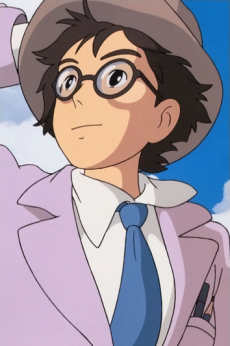
Jirou Horikoshi
( MAIN )
2002

Yuuseijin no Koe
( BACKGROUND )
2000
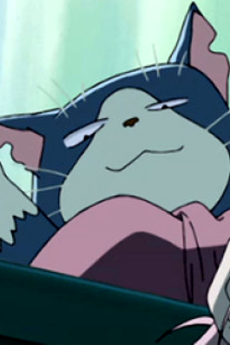
Miyu Miyu
( SUPPORTING )
Anime Staff Roles
To Be Announced
2026


Evangelion Shinsaku Tanpen Animation (Provisional Title)
Chief Supervisor
2025

Kidou Senshi Gundam GQuuuuuuX
Key Animation (ep 2)
Kidou Senshi Gundam GQuuuuuuX
Script (eps 2, 8a, 9)
Kidou Senshi Gundam GQuuuuuuX
Design Works (eps 2, 8-11)
Kidou Senshi Gundam GQuuuuuuX
Storyboard (ep 2)
2023
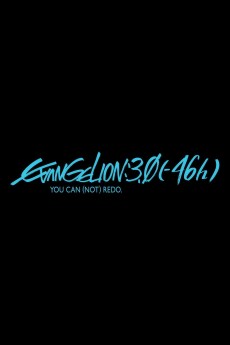
EVANGELION:3.0 (-46h)
Planning
EVANGELION:3.0 (-46h)
Original Creator
EVANGELION:3.0 (-46h)
Chief Supervisor
2022
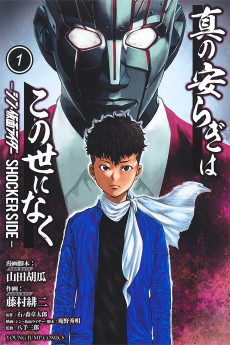
Shin no Yasuragi wa Konoyo ni Naku: Shin Kamen Rider - SHOCKER SIDE
Original Story
2021
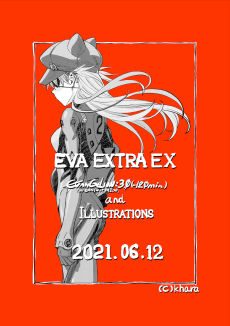
EVANGELION: 3.0 (-120min.)
Planning
EVANGELION: 3.0 (-120min.)
Original Creator
EVANGELION: 3.0 (-120min.)
Supervisor
Shin Evangelion Movie:||
Chief Director
Shin Evangelion Movie:||
Storyboard
Shin Evangelion Movie:||
Script
Shin Evangelion Movie:||
Original Creator
Shin Evangelion Movie:||
Key Animation
Shin Evangelion Movie:||
Planning
2019
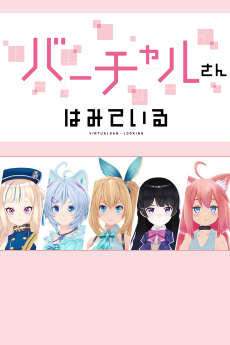
Virtual-san wa Miteiru
Idea Assistance
2017
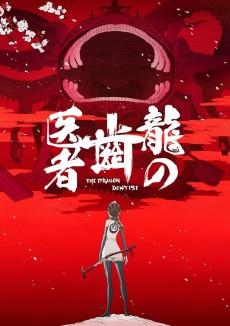
Ryuu no Haisha
Sound Director
Ryuu no Haisha
Production Generalization
2016

